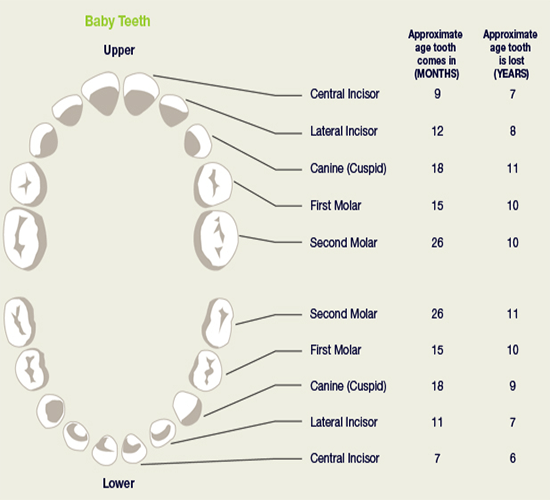
Infants Treatment
Baby teeth start to erupt through the gums between six and nine months of age. These milk teeth or first teeth help your child eat and speak and also help the adult teeth come in straight.
Even tiny teeth must be cleaned. Infants can get cavities just like older children and adults. Following all feedings, you should clean your baby's mouth and teeth.
If the teeth are not large enough for an infant toothbrush, then simply use a piece of gauze or a wet facecloth to wipe teeth and gums. This prepares baby early for what should become a lifelong habit.
Baby's first visit to the dentist should occur by the age of one year, or when the first teeth appear.
-
Infants can get cavities just like older children and adults:-
- Going to bed with fluids other than water in their bottle can cause a lot of damage to your baby's teeth. If your baby sleeps with a bottle, fill it with water.
- Following all feedings, you should clean your baby's mouth and teeth.
- Letting your baby sleep at the breast or with a bottle of juice, formula or milk can harm your baby's teeth. The sugar will remain on the child's teeth throughout the night and can damage the enamel and cause tooth decay.
- If your baby normally falls asleep while feeding, brush his or her teeth before feeding
-
To prepare for the first visit:-
- Try playing "dentist." Count your child's teeth, then switch roles and let him or her count yours. Make the exercise fun and explain that this is essentially what the dentist will do.
- Explain other things that may happen at the dentist's office, using non-technical language. Don't try to explain X-rays, for instance. Simply say, "The dentist might take some pictures of your teeth with a special camera".
- Take your child along with an older brother, sister or friend when they go for a routine exam or cleaning. It's a good way to familiarize your little one with the dentist's office.
- Treat the appointment as routine. Be sure to advise your dentist about any special needs or medical problems, such as allergies or bleeding disorders.
- Let your child bring his or her favourite stuffed toy along.
